
Viking Names
Maplebeck
Maplebeck, in the Thurgarton Wapentake of Nottinghamshire, is an Anglo-Scandinavian compound formed from Old English mapel ‘a maple tree’ and Old Norse bekkr ‘a stream, a beck’
Read More
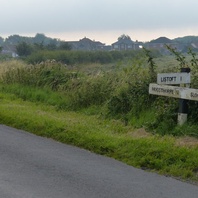
Viking Names
Sloothby
Sloothby, in the Calcewath Wapentake of Lincolnshire, is a complicated name. There are multiple possibilities for the first element of the place-name. The second element is the Old Norse element by ‘a farmstead, a village’. One suggestion is that the first element is the Old Norse byname Slóði ‘the lazy one’; however, this name is not found independently in Lincolnshire and is uncommon in Scandinavia. Another alternative is that the first element could be slóði used as a river-name, referring to a slow-moving sluggish stream. Sloothby is in the fens and a stream runs by. Furthermore, the first element could be the Old Norse element slóð ‘a track, trail’, perhaps referring to a track through the fens. Sloothby is a joint parish with Willoughby.
Read More
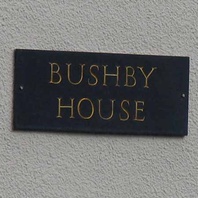
Viking Names
Bushby
The specific element of Bushby, in the Gartree Hundred of Leicestershire, is likely derived from the Old Norse male personal name Butr. Another Old Norse male personal name, Butsi, could also be formally accepted, and this personal name is found in the Danish place-names Busseby and Busserup. It has been suggested that the personal name became confused with Old English busc ‘bush’ or Old Norse buskr ‘shrub’, buski ‘shrubland’. This is a possibility because the neighbouring village Thurnby records a former area of thorn-scrub. The second element of the place-name is Old Norse by ‘a farmstead, a village’, thus Bushby could have the meaning ‘the farmstead of scrubland’ Bushby is now a joint parish with Thurnby.
Read More

Viking Names
Scartho
Scartho, in the Bradley Wapentake of Lincolnshire, is a difficult name. The second element is clearly Old Norse haugr ‘a hill, a mound’. The first element, however, has been the subject of much discussion. It has been suggested that the first element is the Old Norse male personal name Skarði or the Old Norse element skarð ‘an opening, an open place in the edge of something, a gap, a mountain pass’. Since the area is now built up, it is nearly impossible to determine the exact topography of the place. It may be pointed out that there are patches of glacial sand and gravel and alluvium at the top of the hill. It has also been suggested based on forms of the name in Scarf- that the first element is Old Norse skarfr ‘a cormorant’, but these spellings occur in only one source. On balance, skarð provide an acceptable first element, but twentieth-century development makes certainty impossible.
Read More

Viking Names
Willoughby Waterleys
Willoughby Waterleys, in the Guthlaxton Hundred of Leicestershire, is an Anglo-Scandinavian compound from Anglian wilig ‘a willow-tree’ and Old Norse by ‘a farmstead, a village’. This is a common hybrid place-name and in most cases of usage it is a Scandinavianized form of Old English wiligtun ‘farmsted or village where the willows grow’. Some names of this type may conceal the Old English wiliga-beag ‘a circle of willow-trees’. Willoughby is a well-watered parish and lies on gravel and clay between two arms of the Whetstone Brook and has many large pools in its vicinity. Therefore its affix Waterleys from Old English leah ‘a forest, wood, glade, clearing; (later) a pasture, meadow’ and Old English wæter (Old English) ‘water, a river, a lake’ is appropriate. The affix was likely added at a later date to distinguish this Willoughby from Willoughby on the Wolds just beyond the Nottinghamshire boundary to the north.
Read More
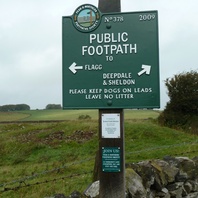
Viking Names
Flagg
Flagg, in the High Peak Hundred of Derbyshire, is a simplex place-name perhaps from the dative plural form (-um) of Old Norse flag ‘a turf, a sod’ with the meaning ‘place where the turfs were cut’.
Read More
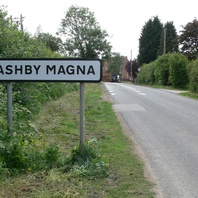
Viking Names
Ashby Magna
Ashby Magna, in the Guthlaxton Hundred of Leicestershire, is likely an Anglo-Scandinavian name coming from Old English æsc ‘ash-tree’ and Old Norse by ‘a farmstead, a village’. Some spellings may show influence of Old Norse eski ‘a place growing with ash-trees’ or even Old English esce ‘a stand of ash-trees’ on the first element. Ashby is a common place-name, but is is uncertain whether this name is an Old English creation Scandinavianized (i.e replacing Old English tun ‘an enclosure; a farmstead; a village; an estate’ with Old Norse by) or whether the name is fully Scandinavian in origin, with Old English æsc (Middle English ash) replacing Old Norse askr ‘ash-tree’. The affix Medieval Latin magna ‘great’ differentiates the township from Ashby Parva, which lies approximately three miles to the south-west.
Read More
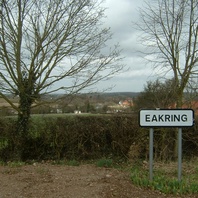
Viking Names
Eakring
Eakring, in the Bassetlaw Wapentake of Nottinghamshire, comes from the Old Norse elements eik ‘oak’ and hringr ‘ring’ and must have been named after a circle of oak trees.
Read More
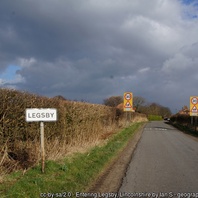
Viking Names
Legsby
Legsby, in the South Riding of Lindsey of Lincolnshire, comes from the Old Norse male personal name Leggr and the Old Norse element by ‘farmstead, village’. The boundary between Legsby and Linwood was recorded as Leggeshou/ Legeshou/ Leggeshow ‘Legg’s mound, burial mound’ presumably named from the same man and Old Norse haugr ‘hill, mound, a burial mound’.
Read More
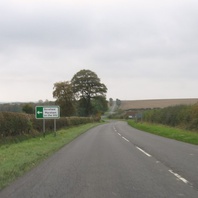
Viking Names
Scrafield
Scrafield, in the Hill Wapentake of Lincolnshire, is probably an Anglo-Scandinavian hybrid from Old Norse skreið ‘a land-slide’ and Old English feld. The latter element has a wide range of meanings in place-names, including ‘open country, unencumbered ground (eg. land without trees as opposed to forest, level ground as opposed to hills, land without buildings)’ and from the late tenth century it also refers to arable land.
Read More
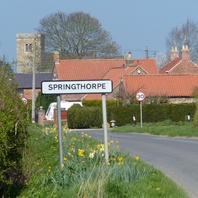
Viking Names
Springthorpe
Springthorpe, in the Corringham Wapentake of Lincolnshire, is an Anglo-Scandinavian compound from Old English spring ‘a spring, a well, the source of a stream’ and Old Norse þorp ‘a secondary settlement, a dependent outlying farmstead or hamlet’.
